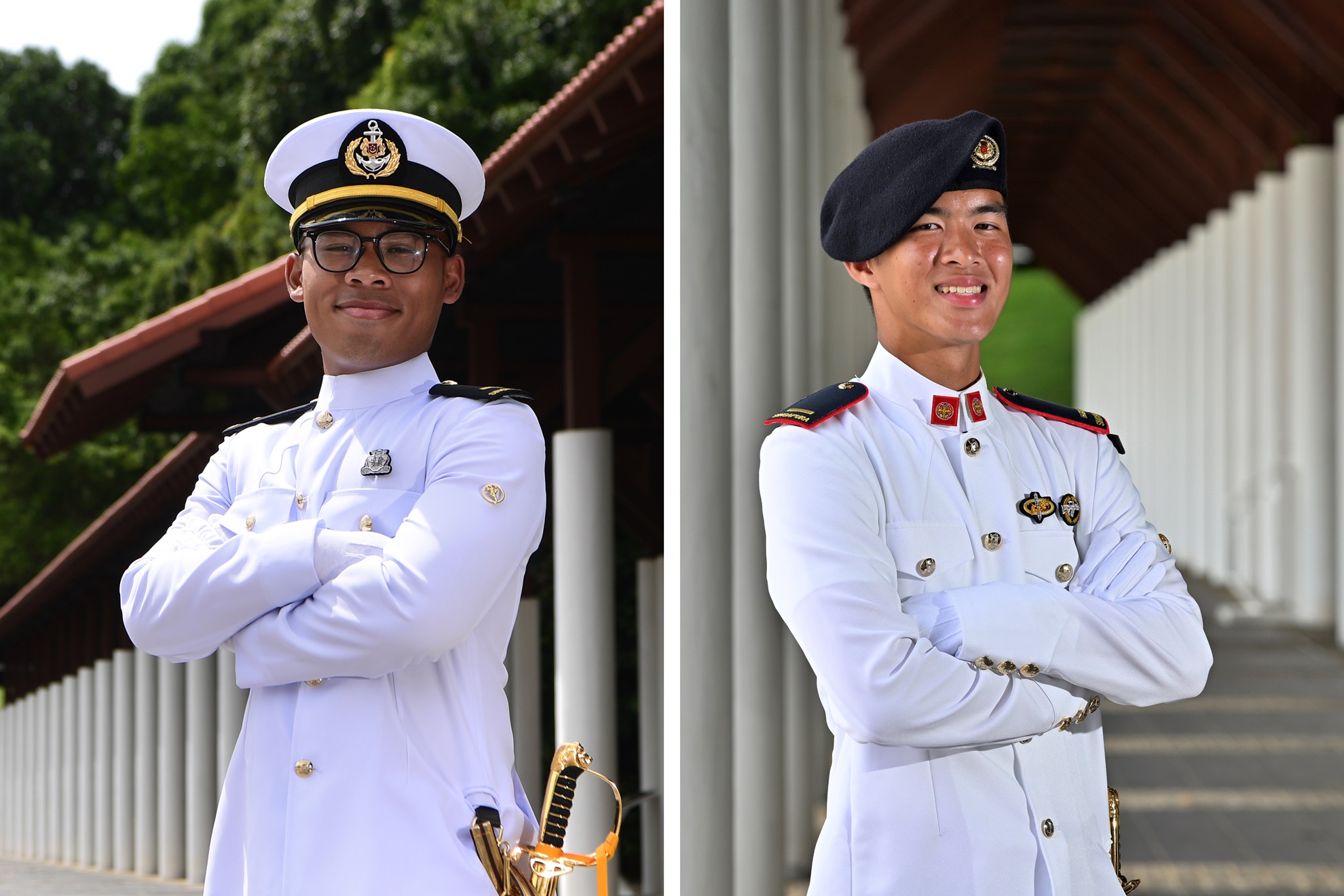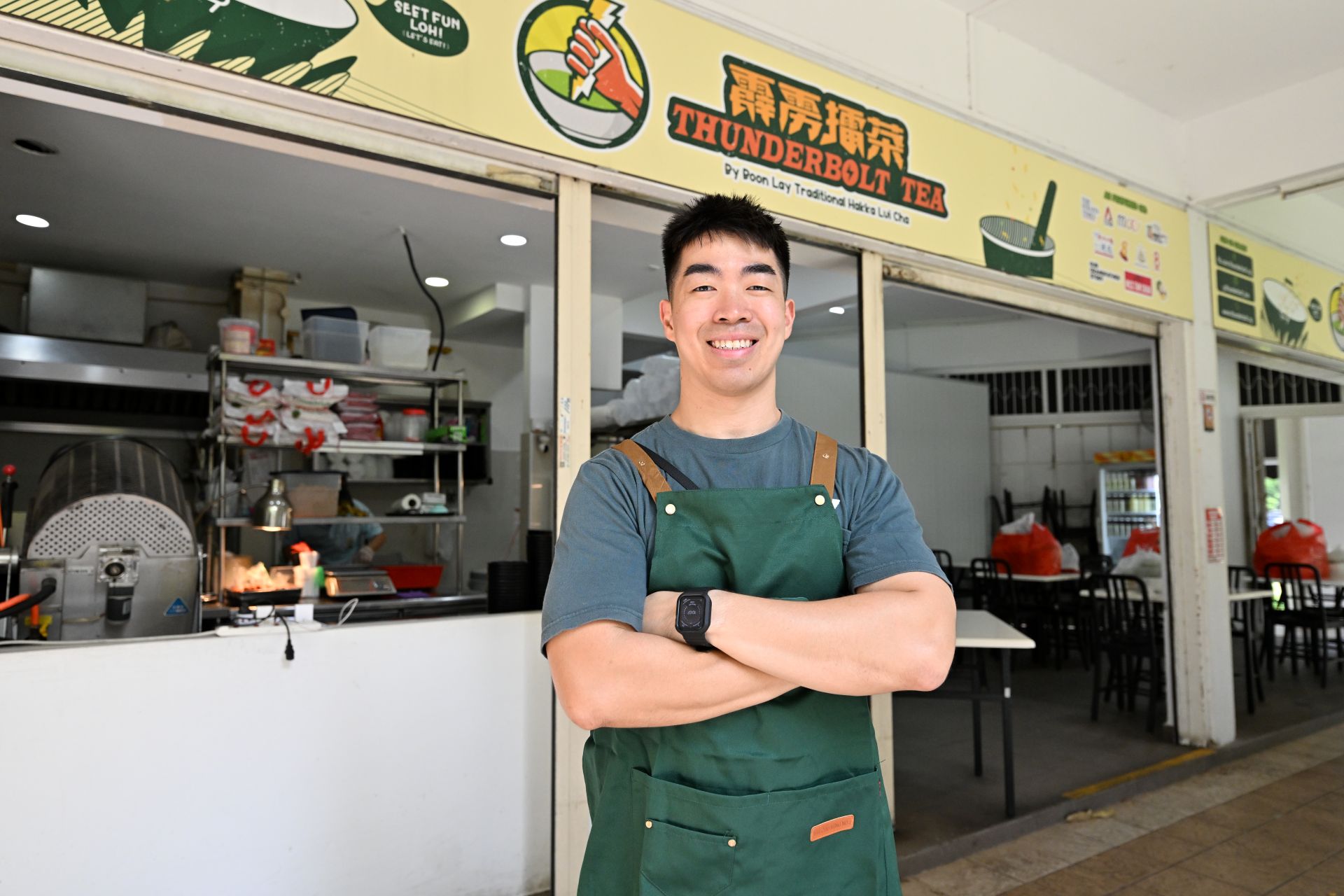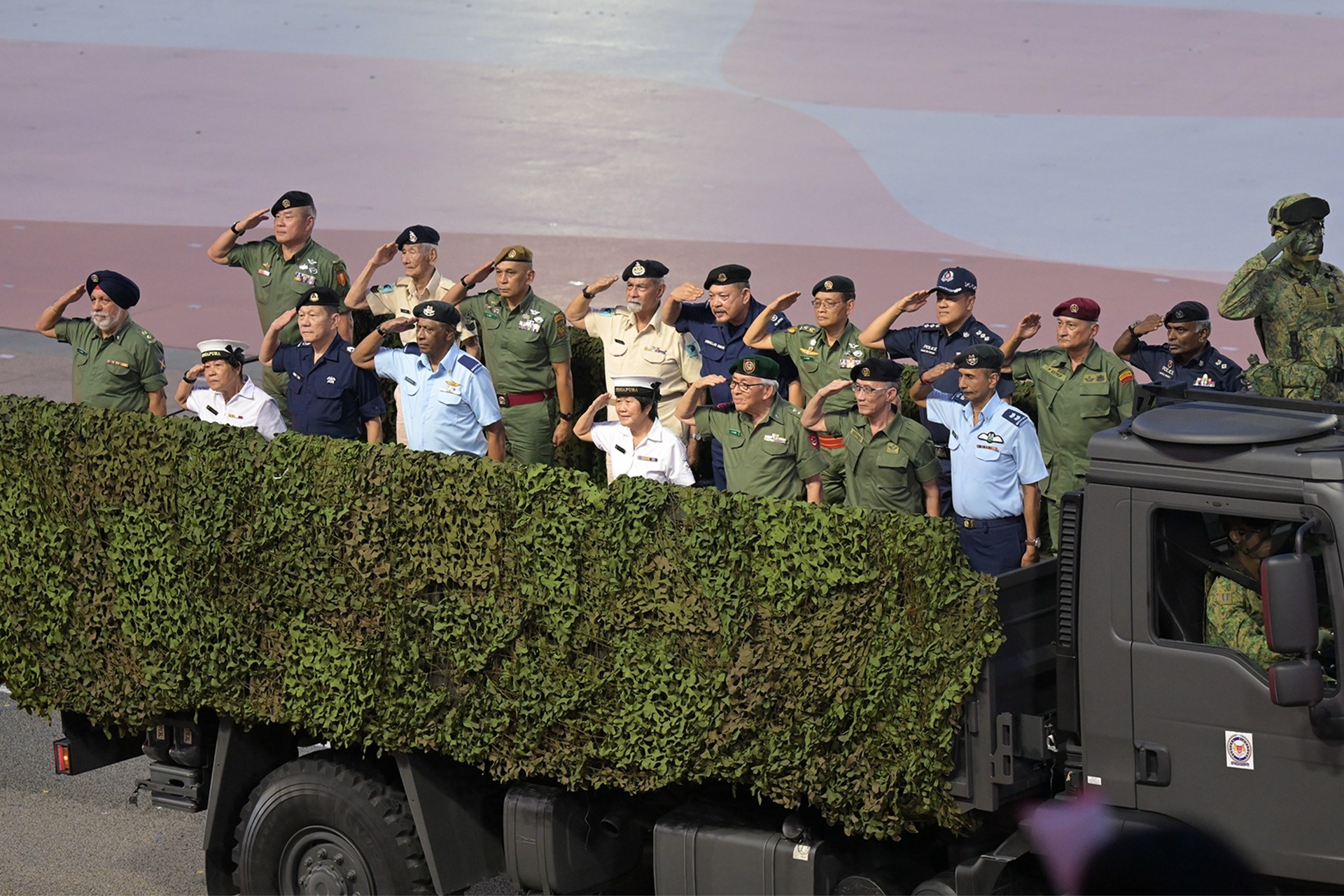PEOPLE
RSAF TO CONTINUE TO INVEST IN CAPABILITIES & TECH: CHIEF OF AIR FORCE
14 Feb 2022
Chief of Air Force Major-General (MG) Kelvin Khong reflects on the way ahead for the Republic of Singapore Air Force (RSAF) and looks back at the past year, in a media interview on the sidelines of Singapore Airshow 2022.
-2022/14feb22_news3_thumbnail.jpg?sfvrsn=8de82a8a_2)
The way ahead for the RSAF
"We are faced with a wide spectrum of conventional and unconventional threats and can expect future air combat to evolve. Looking ahead, we will develop the RSAF in dynamic and multi-faceted ways – continue to invest in conventional air combat capabilities while building capabilities to handle emerging threats. The Next-Generation Singapore Armed Forces (SAF) will see the SAF become a more hybrid force, with greater integration across the Services."
-2022/14feb22_news3_photo2.jpg?sfvrsn=507f2dd8_2)
5th Generation fighter jet
"We have stringent and rigorous evaluation processes in place and have been following the developments of the F-35 closely. We will ensure that the F-35Bs meet our requirements before inducting them for operations.
The United States (US) Department of Defence, in consultation with MINDEF, selected Ebbing Air National Guard Base in Fort Smith, Arkansas as the preferred location to host the RSAF's future F-35B fighter aircraft and F-16 fighter training detachment.
Co-locating the RSAF's F-35Bs and F-16 aircraft will maximise opportunities for integrated training between our 4th Generation and 5th Generation fighter aircraft, and enable joint training and exchanges with the US Air Force's and US Marine Corps' F-35s."
-2022/14feb22_news3_photo3.jpg?sfvrsn=e88910b2_2)
Latest tanker put to the test
"The RSAF's A330 Multi-Role Tanker Transport (MRTT) attained Full Operational Capability in April 2021 and has proven to be a versatile and valuable asset to the RSAF.
Looking ahead, we will continue to explore and enhance the capabilities of the A330-MRTT. The Smart A330-MRTT programme with Airbus will develop, certify and implement the Automatic Air-to-Air Refuelling (AAR) capability as well as enhance maintenance solutions for the A330-MRTT.
The automated refuelling will reduce air refuelling operator workload, improve safety and optimise AAR in operational conditions. Trials are ongoing and progressing well. The RSAF will continue to work with Airbus to achieve certification of the Smart A330-MRTT.”
-2022/14feb22_news3_photo4.jpg?sfvrsn=76464a62_2)
Power lift from new helicopters
"We took delivery of the H225M Medium Lift Helicopters and CH-47F Heavy Lift Helicopters in March and May 2021 respectively.
The initial delivery of the CH-47F to the RSAF Helicopter Detachment in Oakey, Australia allowed the RSAF to leverage the airspace and terrain to conduct realistic training.
The operationalisation of the H225M is also apace – it was recently deployed for a counter-terrorism exercise this February, working together with the SAF's Special Operations Task Force to test the SAF's response to threat scenarios.
With the operationalisation of both helicopters ongoing, and subsequent deliveries to be received in phases, the existing fleet of Super Pumas and older CH-47D Chinooks will be progressively drawn down."
-2022/14feb22_news3_photo5.jpg?sfvrsn=d7c05b3b_2)
Supporting people development
"We continually exploring ways to support our NSFs (Full-time National Servicemen). One such initiative is the Work-Study Diploma, which provides training and certification for our NSFs, equipping them with industry-relevant skills while they are in Service.
The first Work-Study Diploma in Aircraft Maintenance Engineering for NSF Air Force Technicians was launched with the Institute of Technical Education in September 2020. We also launched a Work-Study Diploma in Engineering (Aerospace) with Temasek Polytechnic in October 2021. We will continue to expand such initiatives where possible.
-2022/14feb22_news3_photo6.jpg?sfvrsn=54204f8a_2)
We also look to technological advancements to enhance the way we train and conduct operations. In addition to high-fidelity simulation technology such as the F-15SG Air Mission Trainer, helicopter flight simulators and the UAV simulator training system, we also tap on technologies such as Virtual Reality (VR) and Augmented Reality (AR) to enhance training.
These simulators are valuable tools as they are able to generate scenarios that are difficult to replicate safely in real life. This provides quality and realistic training for our airmen and women, to build up their confidence while honing their operational skills.
Notwithstanding, live flying and hands-on training remains a necessity to keep our personnel proficient to operate in real-world mission conditions to safeguard Singapore’s skies.
-2022/14feb22_news3_photo7.jpg?sfvrsn=b10e6bdf_2)
Adapting training amid COVID-19
"When the pandemic first hit Singapore, the RSAF needed to react promptly and adjust our training and operations to ensure that we could continue our mission of defending Singapore’s skies, 24/7, without compromising the health and safety of our personnel.
We quickly isolated our critical operational units to ensure operations like air defence and Search and Rescue were not affected, (and)…adapted to and implemented strict Safe Management Measures at our workplaces.
The RSAF also continued training and force generation activities in our overseas detachments. This includes…large-scale overseas exercises such as Exercise Forging Sabre at Mountain Home Air Force Base, Idaho, US in September 2021, and Exercise Wallaby at Shoalwater Bay Training Area, Queensland, Australia from September to October 2021.
Such high-key overseas exercises and training are important for the RSAF to mitigate local airspace constraints and to hone our operational skills and air combat readiness... Overseas exercises also provide opportunities for us to benchmark ourselves against reputable Air Forces around the world while…strengthening coordination and forging stronger defence relations.
-2022/14feb22_news3_photo8.jpg?sfvrsn=9af042d8_2)
COVID-19 has also reinforced the need to future-proof the way we operate. Some features we have incorporated to make us more resilient during a pandemic include Tengah Air Base Medical Centre’s pandemic-ready infrastructural and technological features, such as isolation rooms with separate ventilation systems to prevent contamination of airflow.
Through the COVID-19 pandemic, I have learnt that our airmen and women are resilient and deeply committed to our mission of defending Singapore's skies.
The last two years had undoubtedly been difficult and challenging, but it was always encouraging to see how everyone pulled together to accomplish the mission. As we transit to an endemic COVID-19 society, we will need to learn to live with the virus while ensuring that our training and operations are not impacted."
ALSO READ IN PEOPLE

Rising above the tide & stepping forward to lead
13 Dec 2025
They’re among the SAF’s latest batch of officer graduands this year. Meet 2LT Mohamad Wira Kuriniawan and 2LT Ryan Ong, who will be heading to the Navy’s 180 Squadron and 1st Battalion, Singapore Guards respectively.

Guardian of the skies, guardian of family heritage
08 Dec 2025

Father & son, bonded by service
02 Dec 2025


